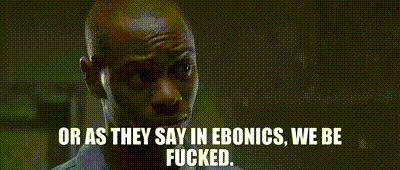Sunshine-warm this near-noon Friday here in California’s Central Valley — another work week getting ready to bite the dust of time as 2023 continues to zoom on down the calendar road.
As an add-on to my post from last Wednesday on an Antarctic ‘heat wave’ and the impact on sea-level rise and the overall climate change horror, there’s some related news on the consequences of putting off action on our warming/heating environment and mankind might be pretty close to a breakpoint — so much bad shit happening could override efforts to curb emissions.
Some red-light, alarm-sounding shit per Inside Climate News this morning:
Governments could soon be so overwhelmed with the consequences of climate change that they’re unable to address its root causes, creating a self-perpetuating cycle that researchers are calling a climate “doom loop.”
In a report published Wednesday by Chatham House and the Institute for Public Policy Research, two London-based think tanks, researchers warned that the climate crisis was already imposing incredible costs on nations as they deal with everything from increasingly destructive storms and wildfires to more frequent famines and human migrations. As those costs snowball, they said, it could force governments to dial back or even abandon their efforts to reduce their greenhouse gas emissions, leading to larger economic burdens in the future.
“This is a doom loop,” the researchers wrote in their report. “The consequences of the crisis and the failure to address it draw focus and resources from tackling its causes, leading to higher temperatures and ecological loss, which then create more severe consequences, diverting even more attention and resources, and so on.”
Not too encouraging:
Escalating costs of adaptation plus distractions like the +1.5C debate could swallow the funds/momentum needed for climate mitigation, according to new report from @IPPR and @ChathamHouse (via @dpcarrington) https://t.co/WtU9UXDkIk
— Tom Jennings ?? (@tomjennings) February 16, 2023
Further implications via the Guardian yesterday afternoon:
Those arguing 1.5C was still possible risked perpetuating complacency that today’s slow pace of action was sufficient, the researchers said, while those arguing it was not possible risked supporting fatalism that little that could now be done, or “extreme approaches” such as geoengineering.
Avoiding a doom loop required a more honest acceptance by politicians of the great risks posed by the climate crisis, the researchers said, including the looming prospect of tipping points and of the huge scale of the economic and societal transformation required to end global heating. This should be combined with narratives that focused on the great benefits climate action brought and ensuring policies were fairly implemented.
“We’ve entered, sadly, a new chapter in the climate and ecological crisis,” said Laurie Laybourn, an associate fellow at IPPR. “The phoney war is coming to an end and the real consequences now present us with difficult decisions. We absolutely can drive towards a more sustainable, more equitable world. But our ability to navigate through the shocks while staying focused on steering out the storm is key.”
[…]
Unfairness in climate policy could drive the doom loop, Laybourn said, because if people felt unaffordable changes were being forced on them they would reject the need for a green transition. But, he added: “If you have fairness at the heart of things, it can instead be a virtuous circle, if you’re in a situation where people recognise that switching to a heat pump and having better insulation will be better for them regardless of the climate crisis.”
Making progress on climate action resilient to difficulties posed by climate impacts was also crucial. “I’m a massive fan of citizens’ assemblies, because if people feel they have a role in decision making, they’re more likely to maintain their support, even in a future in which the shocks start to rack up. They become moments where we actually do build back better,” said Laybourn, unlike after the 2008 crash and Covid pandemic.
Bob Ward, of the Grantham Research Institute on Climate Change at the London School of Economics, said: “This report rightly highlights the critical point we have reached, namely the increasing likelihood that global temperature will rise by more than 1.5C. This does not mean that we should abandon the target.
“Our main aim should still be radical emissions cuts to try to avoid breaching 1.5C, but we should now also be considering what happens if we continue to fail.
“This will mean bringing temperatures back down [and] we will have to invest in geoengineering options such as carbon dioxide removal and even solar radiation management. But it also means we will have to spend far more on dealing with [climate] damage, which will make it more difficult to make the transition to a sustainable, inclusive and resilient world.”
Time is of the way-essence — don’t make Pinball right:
Looped doom-like, or not, yet here we are once again…
 (Illustration out front found here.)
(Illustration out front found here.)
